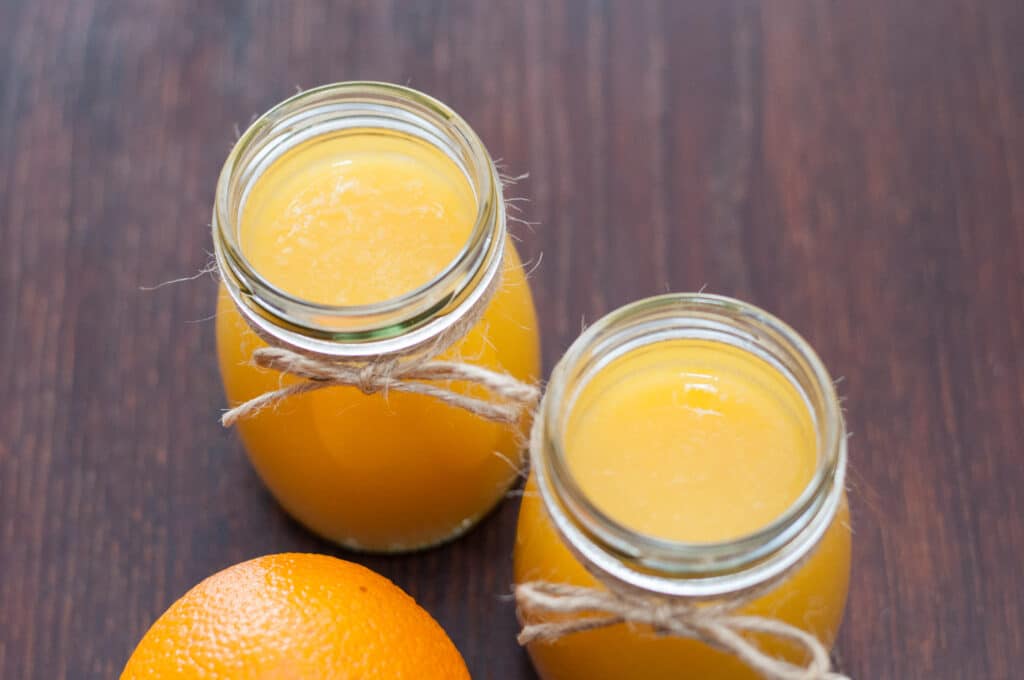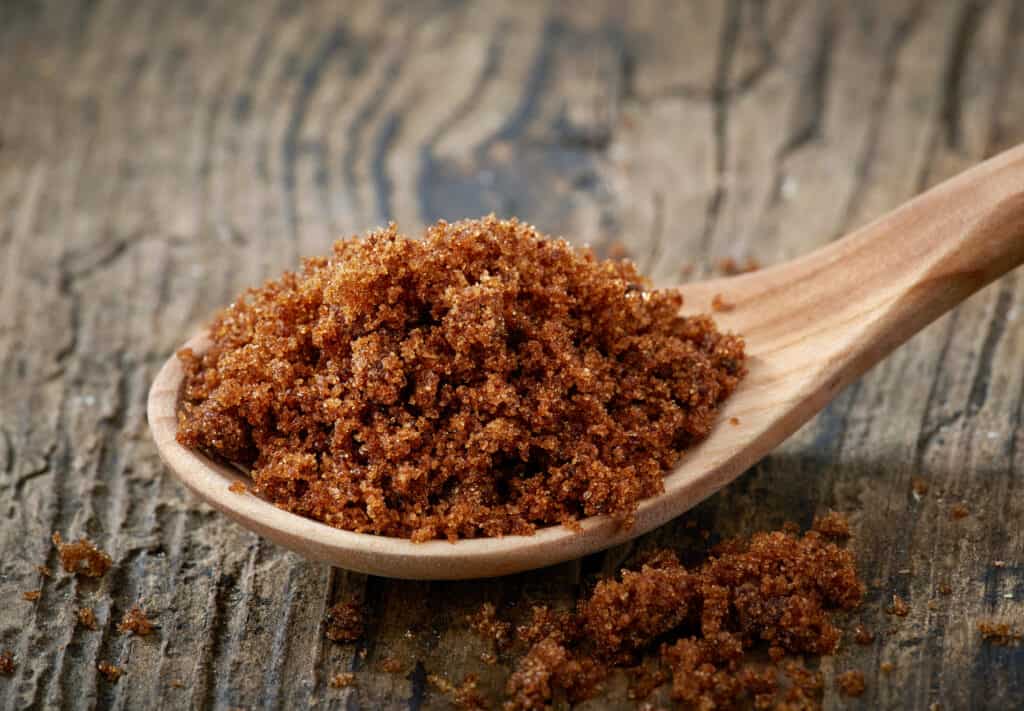How Long Does Homemade Juice Last in the Fridge? | 6 Tips to Make It Last Longer!
This post may contain affiliate links. Read our disclosure policy here.
Fresh, homemade juice hits the spot every time, especially after a long day of gardening in the summer. Homemade juices are also tastier and healthier than store-bought juices. However, making homemade juice every day is a bit time-consuming, so the best way for my family to enjoy instant refreshments is for me to make a big batch and freeze it. In this post, I’ll share 6 tips on how to make homemade juice last longer!
How Long Does Homemade Juice Last in the Fridge?
Homemade juice lasts between 24 to 72 hours if stored properly in the fridge. Keep in mind, though, that homemade juice tastes better within the first 24 hours. The longer you keep it in the fridge, the less fresh it will be. But there are a few things you can do to make your homemade juice last even longer.
5 Factors That Affect How Long Your Homemade Juice Lasts in the Fridge
Here are 5 factors that affect your homemade juice’s shelf life and how you can extend it.
1. Type of Juicer Used
The type of juicer you use can affect how long your homemade juice lasts in the fridge. The most common types of juicers are centrifugal, twin-gear, blenders, and masticating juicers.
Each of these juicers will allow your juice to last for different periods:
| Type of Juicer | Shelf Life of the Juice |
| Twin-gear juicers | 4 to 5 days |
| Masticating (Cold-press) juicers | 2 to 3 days |
| Blenders | 24 to 48 hours |
| Centrifugal juicers | 24 hours |
The Best Juicers for Homemade Juices
The best types of juicers for homemade juices are masticating juicers and twin-gear juicers.
- Twin-gear juicers, also known as triturating juicers, have two gears that can process different types of fruits and vegetables into highly nutritional juices. These juicers typically reserve juice for up to about 4 to 5 days. You need to chop up your ingredients before putting them in this juicer. They’re also not the easiest juicers to clean. Despite these minor setbacks, this type of juicer will make your juice last longer than other juicers. I particularly like Tribest’s twin-gear juicers, like the Tribest Greenstar GS-1000. It’s easy to assemble and has a powerful 190 watts. This type of juicer is the most expensive.
- Masticating or cold-press juicers will keep your juice fresh for about 2 to 3 days. They don’t produce too much heat, thanks to their slowly rotating augers. I recommend using the Jocuu Masticating Juicer, which is easy to use and has a handy, 2-speed spiral system. The Breville Cold Juicer is also one of my favorites because it provides an innovative cold extraction system that can easily give you 70 fl oz of high-quality juice – thanks to its 850-watt motor.
- Citrus Juicers are the cheapest kind of juicers that are on the market but this is because they are only for citrus fruits like oranges and lemons. This Cuisinart Citrus Juicer served me well for a long time.
2. Type of Produce
The type of produce you use really matters when you make homemade juice, as most fruits and vegetables have a shelf life of about 24 to 72 hours (depending on how and where you store them). Make sure that your fruits and vegetables are fresh and organic. Using expired or ripe fruits or vegetables might affect the longevity of your juice.
The only fruit that you should never store if juiced is navel orange. Navel oranges contain a chemical called limonin, which can make your orange juice get really bitter if exposed to air for about 30 minutes or more.
3. Type of Container
The type of container you use will also affect your juice’s shelf life. For instance, using low-quality plastic bottles causes oxidation and can spoil juice quickly. The best way to store juice is by using airtight containers like mason jars. Mason jars can make your juice last longer because they’re made of glass, which prevents toxins from seeping into your juice. These jars also have rubber seals on their lids, which provide extra protection.
Tip: If you make juice using a centrifugal juicer, your juice will remain fresh for 24 hours in a mason jar. If you make juice using a masticating juicer, your juice can stay fresh for up to 3 days in a mason jar.
Some mason jars that I find handy are Estilo Mason Jar Mugs. These come in a pack of 6 that can hold up to 16 oz of juice, and they have sturdy lids. I also really like the Glass Mason Jar by MASON, which can hold up to 32 oz of juice and comes with a silicon lid that protects your juice from air and toxins.
4. The Temperature of Fridge
Homemade juice can be stored in the fridge or freezer, preferably at a constant temperature of 0 degrees. If you decide to keep your homemade juice in the freezer, it can last up to 6 months. However, keep in mind that the juice will taste differently the longer it’s kept in there and lose some of its nutritional value.
It’s still a good idea to freeze your juice if you make a big batch. Just make sure you have enough space in your container to let air escape. You should also defrost frozen juice for at least 24 hours before consuming it.
5. The Acidity of the Juice
Highly acidic fruits tend to last longer because they are more stable and balanced. Citrus fruits contain vitamin C and antioxidants that slow down the oxidation process. Try adding lemon or orange slices to your juice to make it last longer.
6 Tips to Make Your Homemade Juice Last Longer
Here are some tips on how to extend the shelf life of your homemade juice.
1. Use Airtight Glass Containers
While most people use plastic bottles to store their juice, it’s highly recommended to use airtight glass containers. Mason jars, or any type of airtight glass container, will prevent air from seeping into your container and spoiling your juice.
2. Store It Right Away
The quicker you store your juice, the better. Air and sunlight can increase your juice’s temperature and cause oxidation. If you store your juice right away (preferably in 20 minutes or less), you can ensure a longer shelf life.
3. Fill the Container to the Brim
If you’re storing your juice in the fridge, you need to make sure that your container is filled all the way up. This will prevent your juice from evaporating and oxidizing (which can spoil your juice faster).
However, if you plan on storing your juice in the freezer, leave some space unfilled because the freezing temperatures will cause it to expand.
4. Freeze the Juice
If you make too much juice and can’t drink all of it within 3 days, freeze it! Just remember that it will lose some of its nutrients and flavor the longer it’s frozen. Freezing juice can extend its shelf life up to 6 months, but it’s best consumed within 3 months.
Tip: If you’re going to freeze your juice, using ice cube trays is a fun and unique way to do this! You can pop out a few cubes and add them to your water or make smoothies with them.
5. Vacuum Seal the Container
Vacuum sealing the container can be a game changer for keeping your homemade juice fresh longer! This increases its shelf life by eliminating oxidation, preventing bacteria formation, and preserving nutrients.
6. Add Citrus Fruit
Adding citrus fruit (such as lemon, lime, orange, or grapefruit) to your juice will prevent it from spoiling quickly. The citric acid in these fruits act as a natural preservative.
Signs of Spoiled Juice
There are some telltale signs that your juice has gone bad.
- You can tell if your juice is spoiled by smelling it. Spoiled juice tends to have a strong, putrid odor. If your juice smells rank, don’t take any chances – just throw it out!
- Before shaking your juice, you should check the top part to see if it has turned brown. A brown layer on top of the juice indicates it has gone bad.
- Spoiled juice can also taste sour, so if anything feels off about it at all, I’d suggest throwing it out and making a new batch.
How Long Does Homemade Juice Keep Its Nutrients?
The bad news is homemade juice can lose some of its nutrients as quickly as 20-30 minutes. The good news is you still get more nutrients from it than from sugary store-bought juices. I highly recommend drinking your homemade juice right away or freezing it.
More Helpful Hints
- Brown Sugar: Everything You Need To Know
- Everything You Ever Needed to Know About Tomato Paste
- How to Store Bacon in the Fridge; Fresh and Cooked
- How Long Does Lard Last in the Fridge? We Tested It Ourselves
- How Long Do Onions Last in the Pantry? Best Storage Ideas
Did you find this post helpful? Be sure to share with your friends on Facebook, Twitter, Pinterest, Instagram, and through Email using the sharing buttons.
Have you tried making your own homemade juice? What is your favorite homemade fruit juice? Comment below!

This blog post on How Long Does Homemade Juice Last in the Fridge? was originally posted on Little House Living in September 2023.







I came here looking for info regarding tip number 5. Could you tell me about how long vacuum sealing the mason jar will extend the shelf life of cold pressed juices?